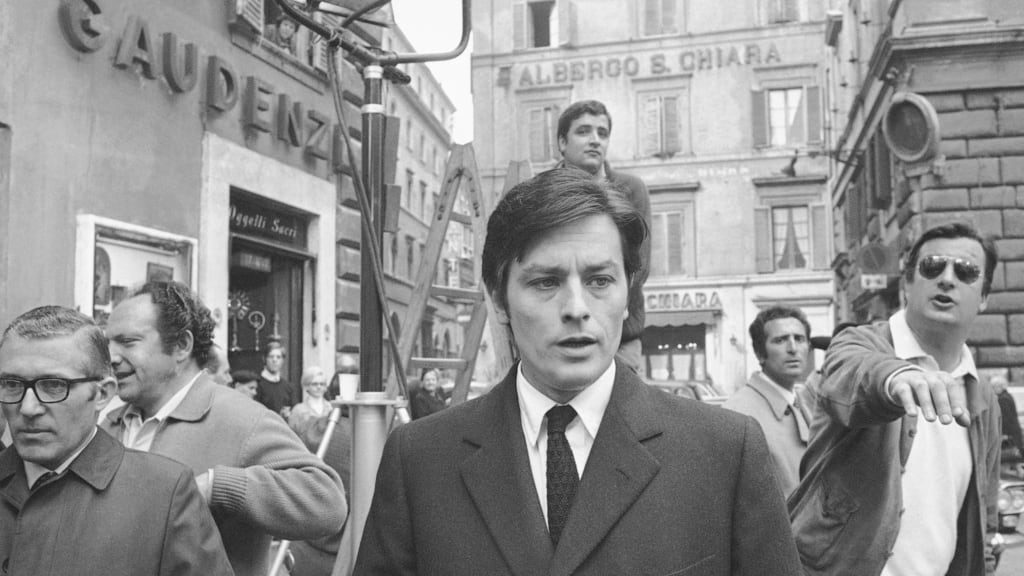PARIS (AP) — With his handsome appearance and tender attitude, Alain Delon was able to combine toughness with attractiveness, a vulnerable quality that made him one of the most memorable leading actors in France. The artist has passed away at the age of 88, as reported by French media on Sunday.
PUBLICIDAD
Delon was also a producer, appeared in theatrical plays, and in his later years, in television movies.
PUBLICIDAD
What did Alain Delon die from?
His children announced his death on Sunday in a statement to the French national news agency, AFP. Tributes to Delon immediately flooded social media, and all major French media outlets changed their programming to cover his extensive career.
He had been diagnosed with B-cell lymphoma, a type of cancer, according to his son Anthony this year.
During the past year, Delon's fragile health condition had been at the center of a family dispute over his care that had led to harsh exchanges in the media between his three children.
Before becoming an actor, he was in the war in Indochina
He was born on November 8, 1935 in Sceaux, south of Paris, and was placed in a foster family after his parents separated when he was 4 years old. He later attended a boarding school at a Catholic school.
At the age of 17, he joined the Navy and was sent to the war in Indochina. Back in France in 1956, he worked in various jobs, such as a waiter or delivery person at the meat market in Paris, before starting to act.
This was Delon’s career
Delon's presence was unforgettable, whether he played depraved heroes or romantic protagonists. He was initially acclaimed for "Plein Soleil" ("Purple Noon") in 1960, directed by René Clément, in which he portrayed a murderer trying to assume his victim's identity.
He made several Italian films, and worked with Visconti on the 1961 film "Rocco e i suoi fratelli" ("Rocco and His Brothers"), in which Delon plays a sacrificial brother who tries to help his siblings. The film won the Special Jury Prize at the Venice Film Festival.
Visconti's 1963 film "Il gattopardo" ("The Leopard"), starring Delon, won the Palme d'Or, the highest honor at the Cannes Film Festival. He also worked on films such as "Paris brûle-t-il?" ("Is Paris Burning?"), with a screenplay by Gore Vidal and Francis Ford Coppola, among others; "La piscine" ("The Swimming Pool"), directed by Jacques Deray, and "The Assassination of Trotsky," by Losey.
At the peak of his career, in the 1960s and 1970s, some of the world's most prominent directors, from Luchino Visconti to Joseph Losey, were requesting to work with Delon.
Delon started producing films in 1968 —26 of them by 1990— with an energy and self-confidence that he maintained throughout his life.
In his last years, he showed disillusionment with the film industry and said that money had killed the dream. "Money, commerce, and television have destroyed the dream machine," he wrote in a 2003 issue of the weekly magazine Le Nouvel Observateur. "My cinema is dead. And so am I."
However, he continued working frequently and appeared in several television movies in his seventies.
Delon had his son Anthony in 1964 with his then-wife Nathalie Canovas, who appeared with him in Jean-Pierre Melville’s film “Le samouraï” (“The Samurai”) in 1967. He had two more children, Anouchka and Alain-Fabien, with a later partner, Roselie van Breemen, with whom he produced a song and a music video in 1987. It was also believed that he was the father of Ari Boulogne, son of the German model and singer Nico, although he never publicly acknowledged his paternity.
